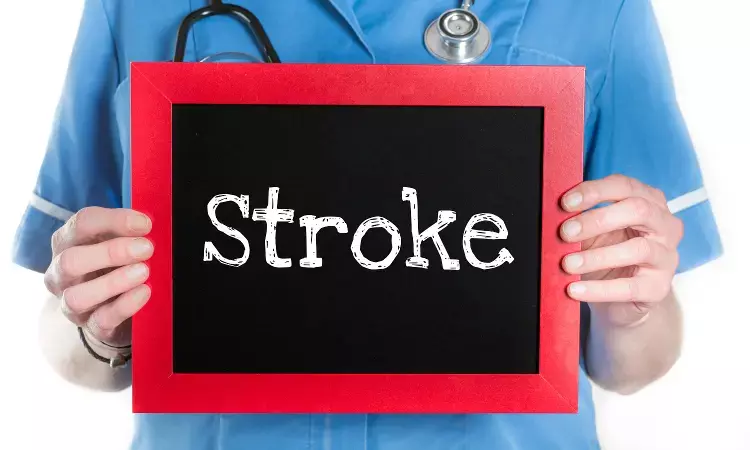- Home
- Medical news & Guidelines
- Anesthesiology
- Cardiology and CTVS
- Critical Care
- Dentistry
- Dermatology
- Diabetes and Endocrinology
- ENT
- Gastroenterology
- Medicine
- Nephrology
- Neurology
- Obstretics-Gynaecology
- Oncology
- Ophthalmology
- Orthopaedics
- Pediatrics-Neonatology
- Psychiatry
- Pulmonology
- Radiology
- Surgery
- Urology
- Laboratory Medicine
- Diet
- Nursing
- Paramedical
- Physiotherapy
- Health news
- Fact Check
- Bone Health Fact Check
- Brain Health Fact Check
- Cancer Related Fact Check
- Child Care Fact Check
- Dental and oral health fact check
- Diabetes and metabolic health fact check
- Diet and Nutrition Fact Check
- Eye and ENT Care Fact Check
- Fitness fact check
- Gut health fact check
- Heart health fact check
- Kidney health fact check
- Medical education fact check
- Men's health fact check
- Respiratory fact check
- Skin and hair care fact check
- Vaccine and Immunization fact check
- Women's health fact check
- AYUSH
- State News
- Andaman and Nicobar Islands
- Andhra Pradesh
- Arunachal Pradesh
- Assam
- Bihar
- Chandigarh
- Chattisgarh
- Dadra and Nagar Haveli
- Daman and Diu
- Delhi
- Goa
- Gujarat
- Haryana
- Himachal Pradesh
- Jammu & Kashmir
- Jharkhand
- Karnataka
- Kerala
- Ladakh
- Lakshadweep
- Madhya Pradesh
- Maharashtra
- Manipur
- Meghalaya
- Mizoram
- Nagaland
- Odisha
- Puducherry
- Punjab
- Rajasthan
- Sikkim
- Tamil Nadu
- Telangana
- Tripura
- Uttar Pradesh
- Uttrakhand
- West Bengal
- Medical Education
- Industry
Time from stroke to epilepsy onset may predict risk of drug resistance in post stroke epilepsy

Italy: A new study published in the European Journal of Neurology suggests that significant diversity in the mechanisms or pathways leading to post-stroke epilepsy (PSE), allowing patients with a varying risk of medication resistance.
Because epileptogenesis is progressive, it begs the issue of whether the latent stage contains information about the features of the eventual epilepsy. Simona Lattanzi and colleagues undertook this investigation to see if the duration between stroke and epilepsy start was associated with the likelihood of treatment resistance in individuals with post-stroke epilepsy.
Patients with epilepsy caused by a cerebral infarction or spontaneous intracerebral hemorrhage were included in the study. The lack of adequate trials of two tolerated and adequately chosen and utilized anti-seizure medication regimens to achieve prolonged seizure independence was designated as the study's result.
The key findings of this study were as follows:
1. There were 149 patients with PSE who had a median follow-up of 5 [interquartile range (IQR) 3-9] years.
2. 29 (18.2%) of the patients in the study were medication resistant.
3. The median time delay between stroke and PSE development was 13 [IQR 7-15] months in medication resistant patients and 19 [IQR 14-42] months in seizure control patients.
4. The time from stroke to PSE was an independent predictor of medication resistance, according to multivariable regression analysis.
5. The likelihood of medication resistance was highest when the beginning of PSE occurred during the first months after a stroke, and it gradually declined with a sharper fall over the first 12 months.
This study has a few flaws, including a single-center design, potential bias, misdiagnosis, a lack of data on modifiable variables (e.g., genetics, post-stroke exposures), and uncertain management of acute symptomatic seizures.
In conclusion, the time to commencement of post-stroke epilepsy independently predicted the likelihood of anti-seizure drug resistance, with the highest risk for individuals whose seizures began during the first few months following stroke.
Reference: Lattanzi, S., Trinka, E., Turcato, G., Rinaldi, C., Cagnetti, C., Foschi, N., Broggi, S., Norata, D., Brigo, F. and Silvestrini, M. (2022), The latency of post-stroke epilepsy can predict drug resistance. Eur J Neurol. Accepted Author Manuscript. https://doi.org/10.1111/ene.15408
Medical Dialogues consists of a team of passionate medical/scientific writers, led by doctors and healthcare researchers. Our team efforts to bring you updated and timely news about the important happenings of the medical and healthcare sector. Our editorial team can be reached at editorial@medicaldialogues.in.
Dr Kamal Kant Kohli-MBBS, DTCD- a chest specialist with more than 30 years of practice and a flair for writing clinical articles, Dr Kamal Kant Kohli joined Medical Dialogues as a Chief Editor of Medical News. Besides writing articles, as an editor, he proofreads and verifies all the medical content published on Medical Dialogues including those coming from journals, studies,medical conferences,guidelines etc. Email: drkohli@medicaldialogues.in. Contact no. 011-43720751


